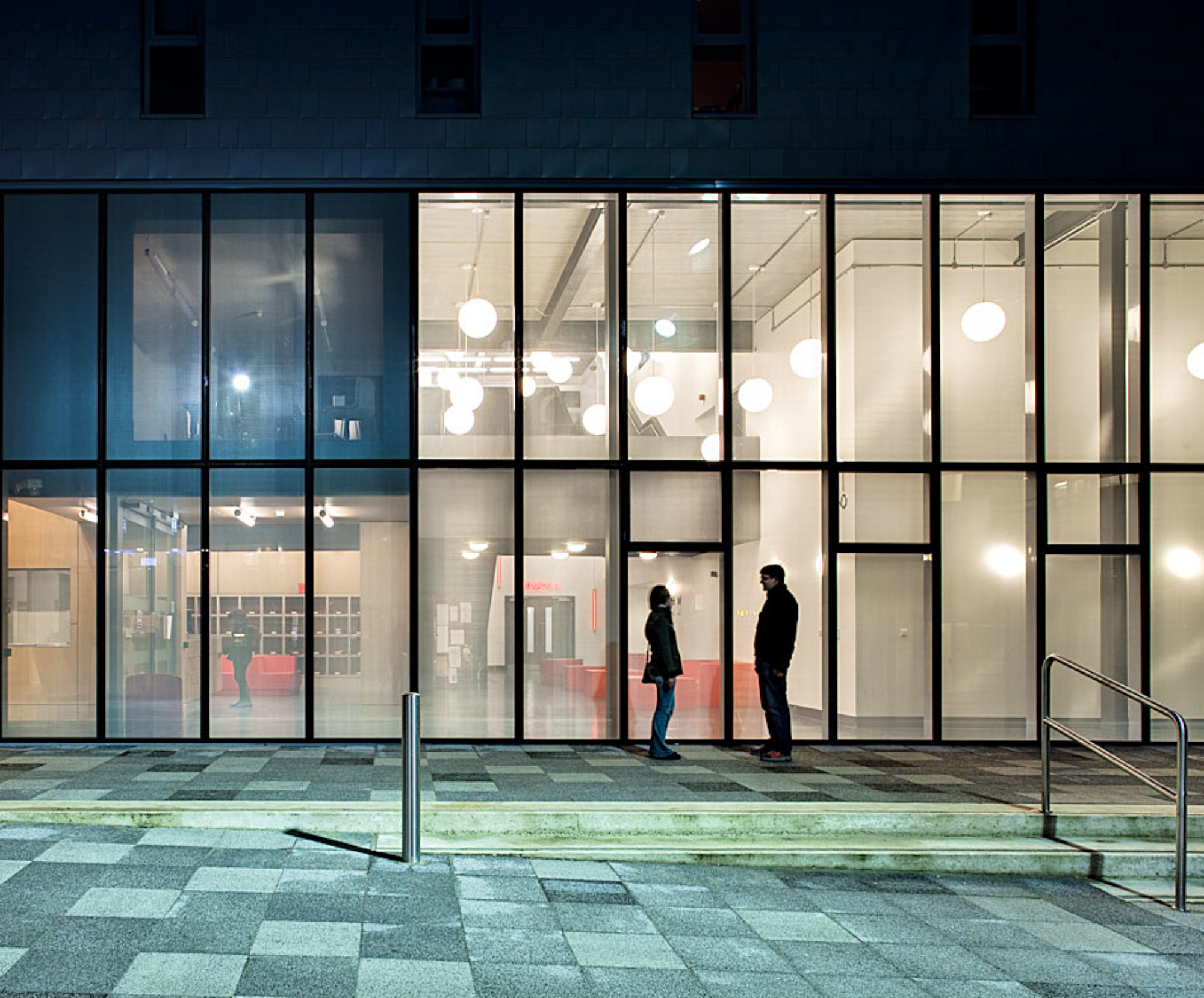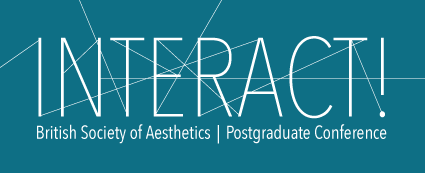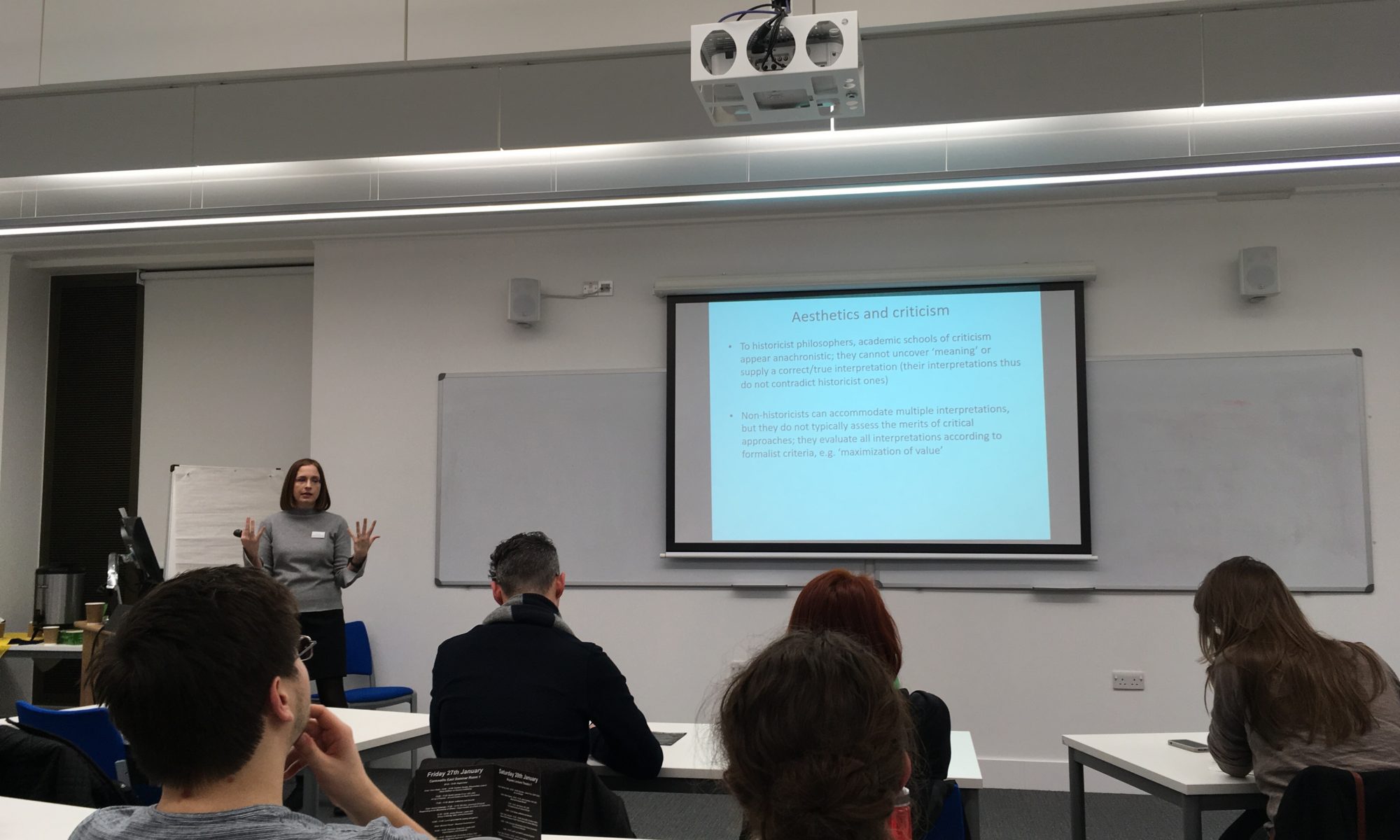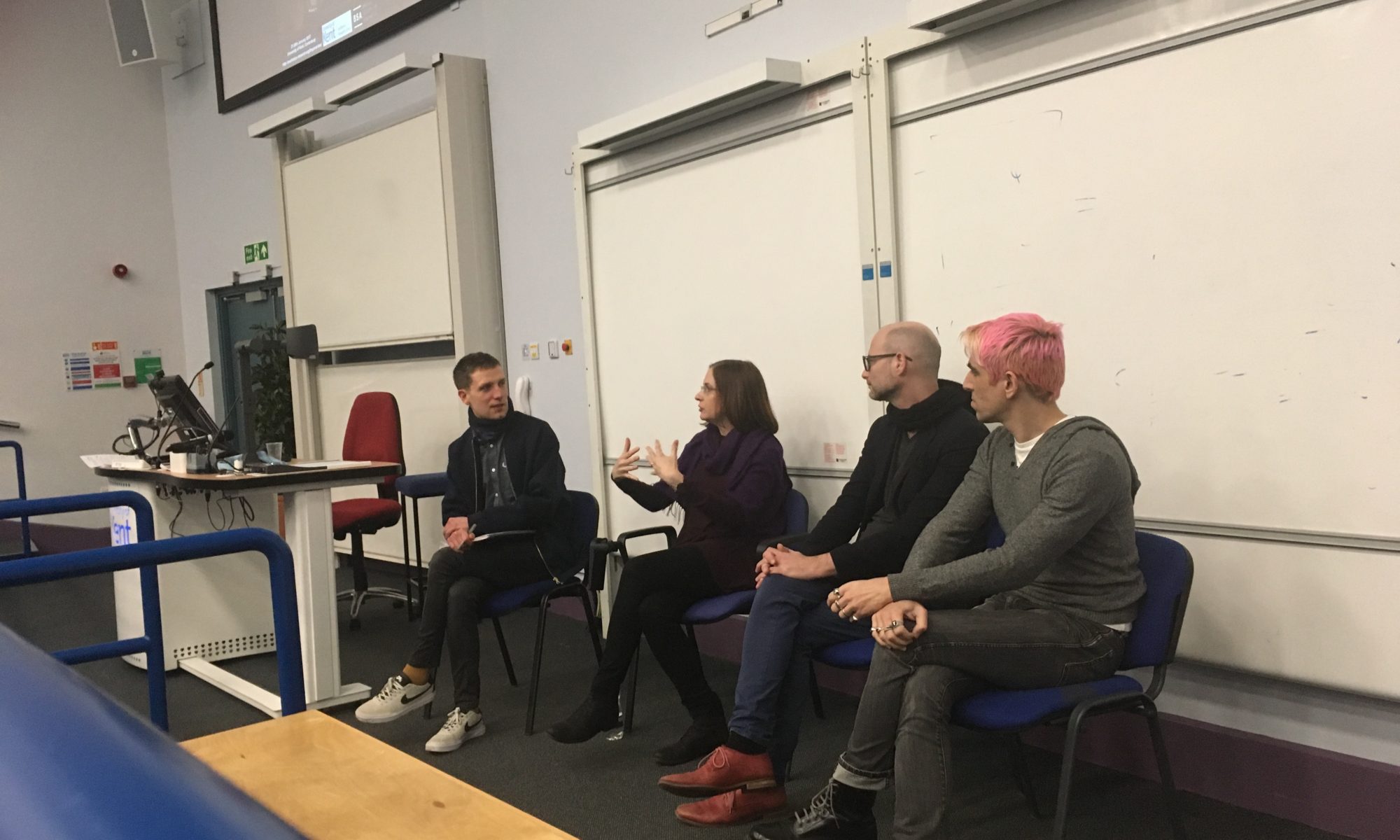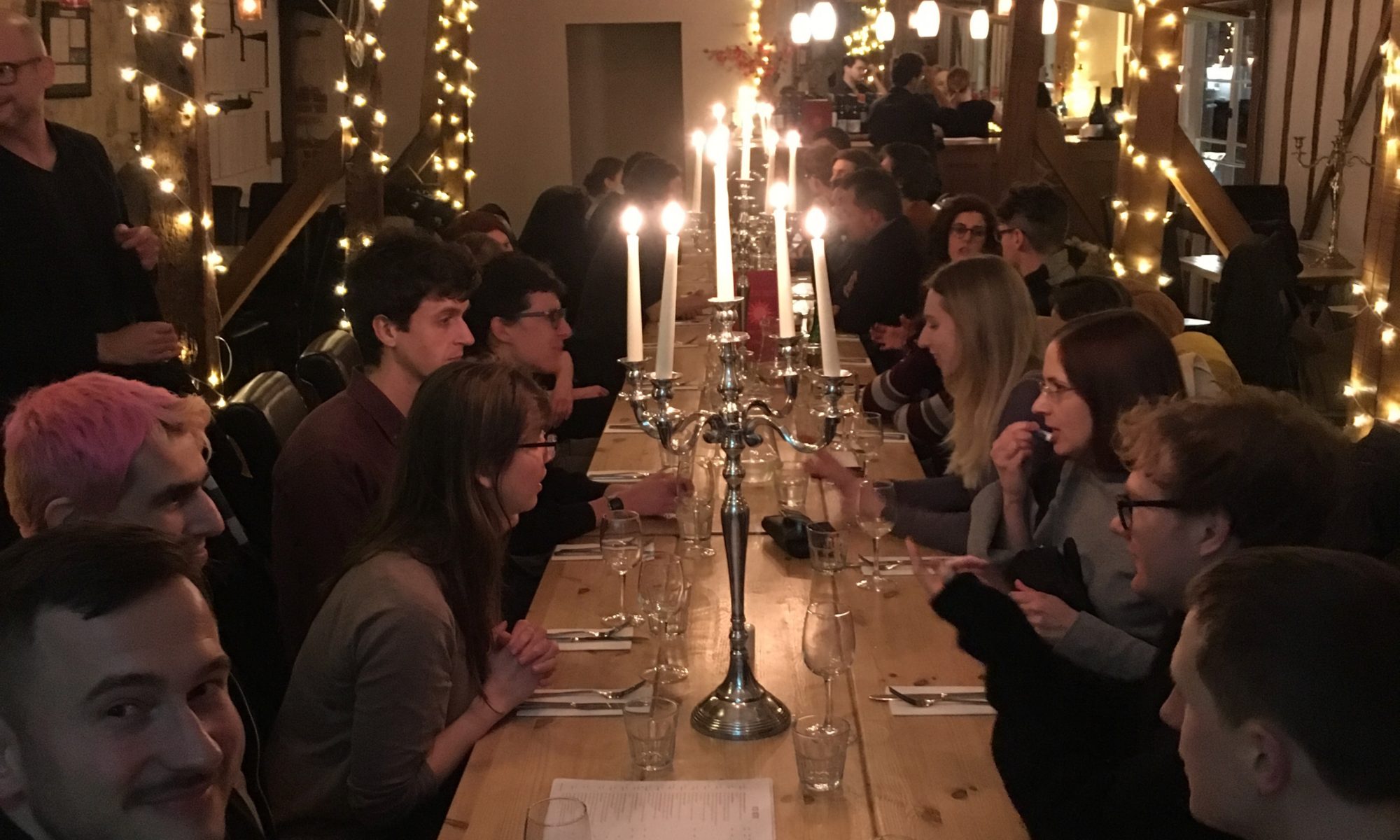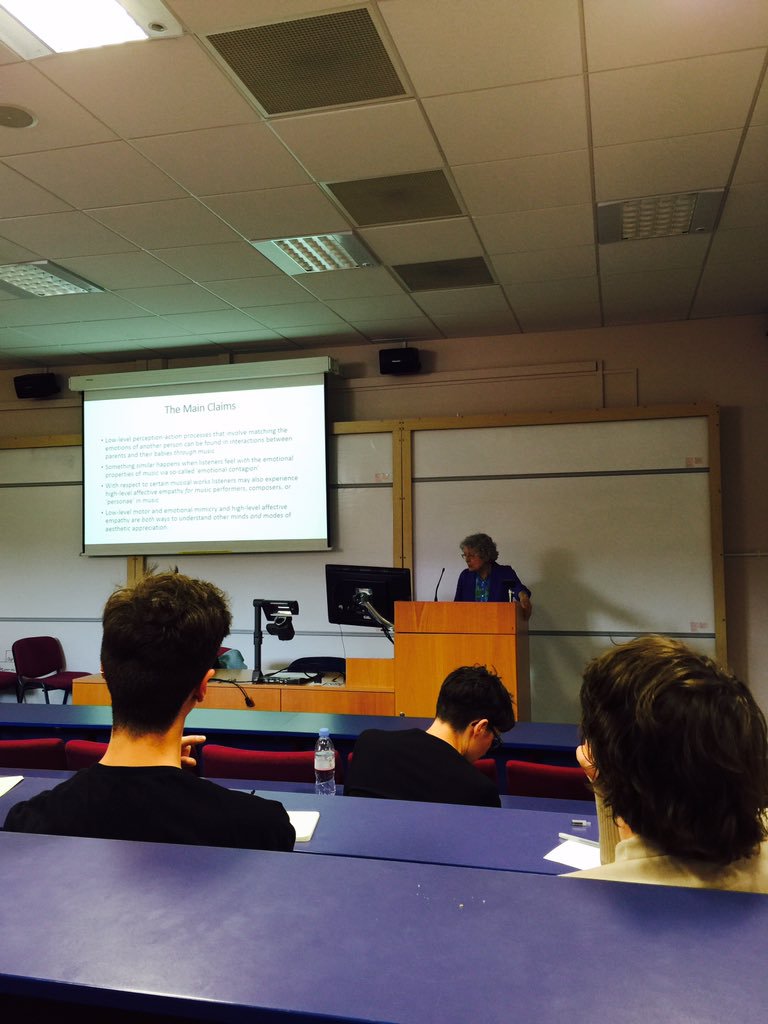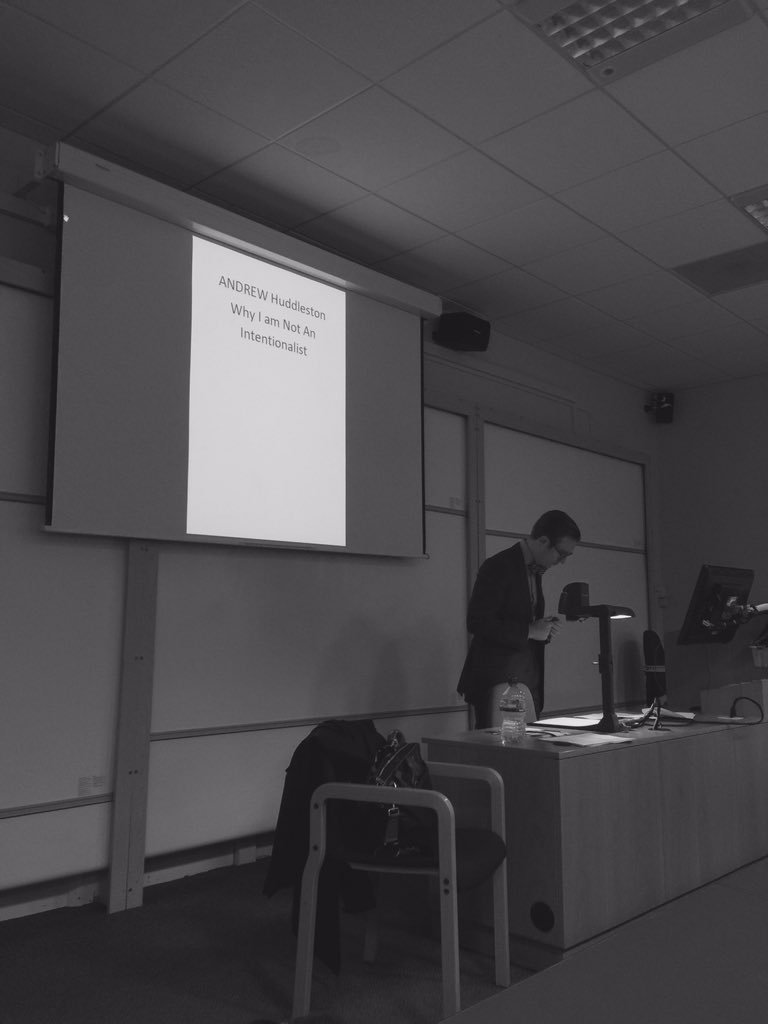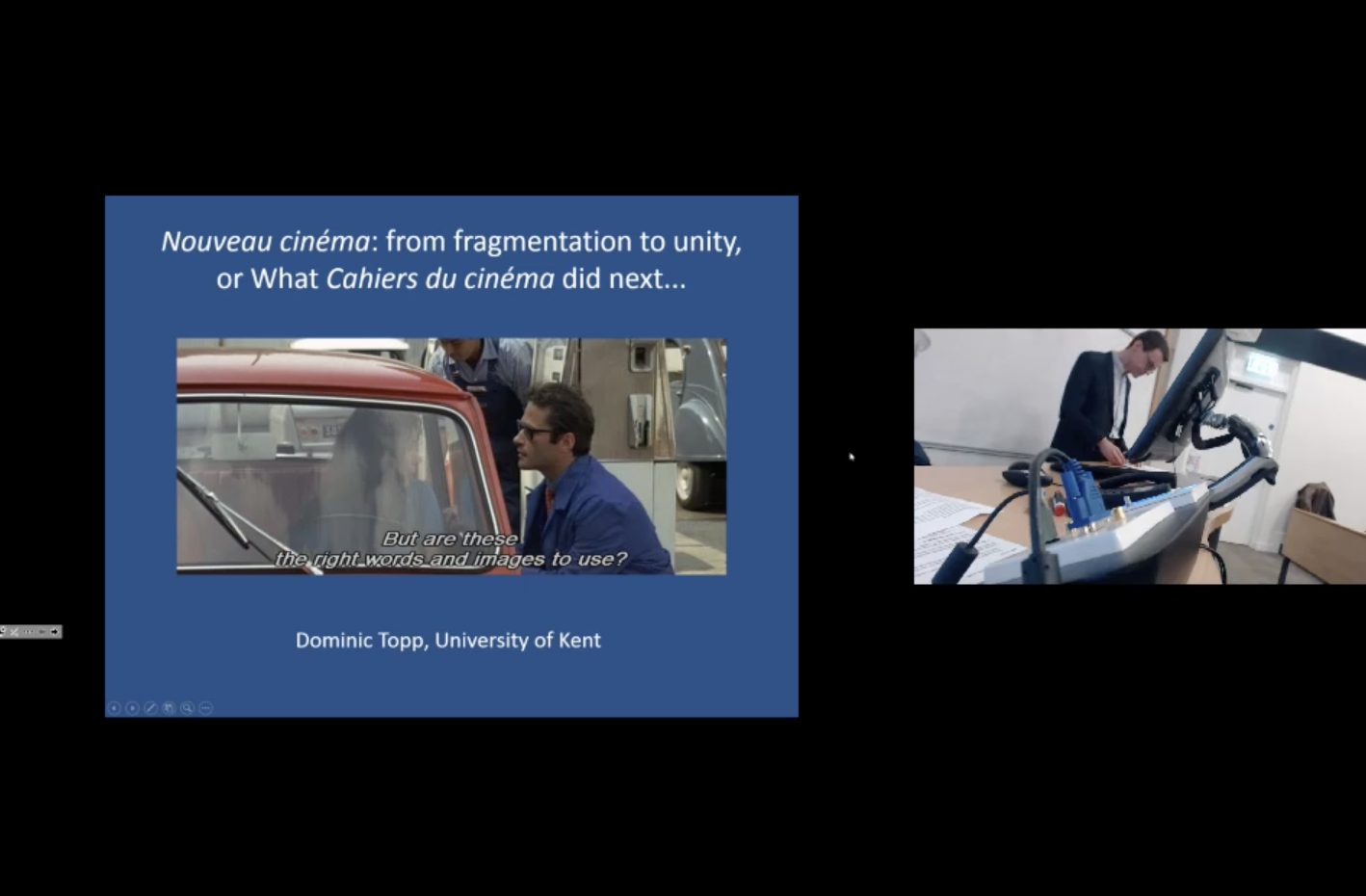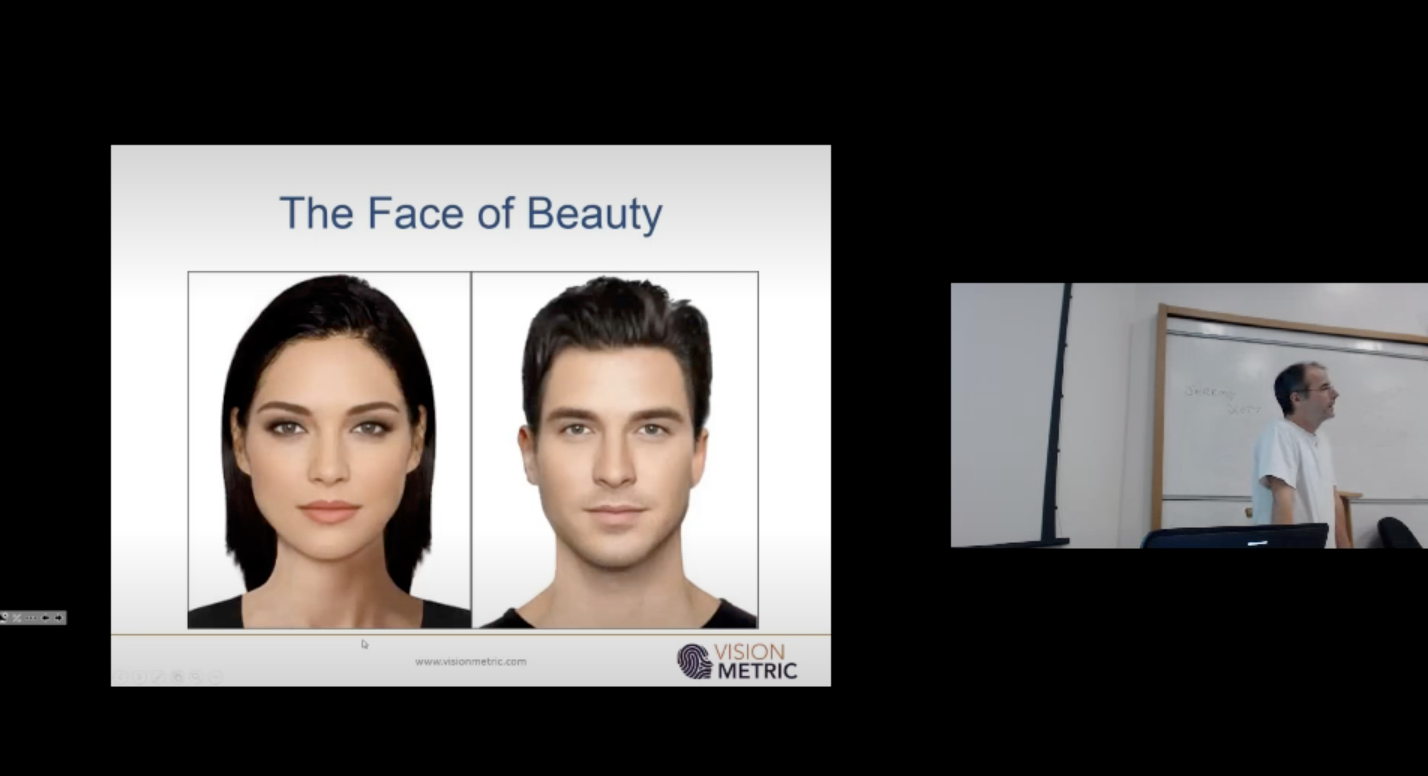Keynote by Professor Elisabeth Schellekens at Interact – British Society for Aesthetics Postgraduate Conference, 7-8 February 2015
Dominic McIver Lopes: Aesthetic Experts, Guides to Value
Aesthetic Experts, Guides to Value
Keynote by Dominic McIver Lopes at Interact (British Society for Aesthetics) at the INTERACT Postgraduate Conference, 7-8 February 2015
Chair: Shelby Moser
Interact: BSA PG Conference
SESSION 1
- ‘Affective Representation of Aesthetic Properties — Kris Goffin, Ghent University
- The Role of Emotions in the Experience of Inanimate Objects’ Expressiveness’ —Marta Benenti, University of Turin
- ‘The Temporality of Aesthetic Experience: A Neurophilosophical Approach’ —Carlos Vara, Universitat Pompeu Fabra
SESSION 2
- The Diversity of Counter-Moral Fictions and the Ethical Criticism of Art — Adriana Clavel Vazquez, University of Sheffield
- Can we be Romantic about Narratives? Rediscovering a Context for Actual Intentions in Aesthetics —Mary Edwards, University College Cork
- Ryle on Make-believe: An Evaluation of the Treatment of Imagination in The Concept of Mind for Aesthetical Theories of Fiction — Guillaume Schuppert, Les Archives Henri Poincaré
SESSION 3
- What Constitutes Architecture’s High Art Status — Rebecca Wallbank, Durham University
- On the Difference between Categories of Artworks and Nature; A Critique of Allen Carlson’s Unified Aesthetics — Mami Aota, The University of Tokyo
- Structural Monism for Musical Works — Nemesio Garcia-Garril, University of Granada
SESSION 4
- Aesthetic Powers and Adverbials — James Matharu, St Cross College, University of Oxford
- Wink-Wink, nudge-nudge. Stylistic indicators of irony in cartoons — Dieter Declercq, University of Kent
SESSION 5
- The Phenomenology of Dance: Husserlian and Post-Husserlian Approaches — Emma Lowe, KU Leuven, Belgium
- Technology’s Instances: The digital Re-configuration of Dance Work Ontology — Hetty Blades, Coventry University
Stacie Friend: Truth in Criticism
Jesse Prinz: Art and Wonder
Art, Aesthetics and Beyond: 3rd BSA PG Conference
FRIDAY 27th JANUARY 2017
10:00 – 10:40
Kentaro Tanabe, Ritsumeikan (Japan)
Diana Raffman on Nuance Ineffability
10:40 – 11:20
Sasha Lawson-Frost, UCL (UK)
Art as a Process – Art and History in Hegel’s Aesthetics
11:20 – 11:35
Break: coffee/tea and biscuits
11:35 – 12:15
Olli Aho, Jyvaskyla (Finland)
Responding to the Movements of Others – Improvisation as a Form of Habituality
12:15 – 12:55
James Rimmer, Leeds (UK)
Group Creativity, Skill, and Achievement
13:00 – 13:45
Lunch: provided for paying delegates
14:00 – 14:20
*Reverse Presentation*
Stanisław Święcicki, Leeds (UK)
Improvisation and Creativity
14:20 – 14:40
*Reverse Presentation *
Olimpia Cali, University of Kent (UK)
Considerations for a Cognitive Approach to Audience Studies
14:40 – 15:00
*Reverse Presentation *
Caterina Moruzzi, Nottingham (UK)
Intentionality, Artworks and, AI
15:00 – 15:20
*Reverse Presentation *
Sam Tornio, University of Kent (UK)
Toward a Poetics of Snapchat
15:20 – 15:35
Break: coffee/tea and biscuits
15:35 – 16:15
Tomasz Szubart, Jagiellonian University (Poland)
What Philosophy of Cognitive Neuroscience Could Bring Into the Problem of Musical Meaning?
16:15 – 16:55
Clotilde Torregrossa, St Andrews/Stirling (UK)
A Defence of Experimental Philosophy in Aesthetics
17:00 – 18:15
Keynote – Stacie Friend, Birbeck (UK)
Elucidating the Truth in Criticism
19:30
Dinner at Cafe du Soleil
Reservation needed, see registration
SATURDAY 28th JANUARY 2017
Location: Keynes Lecture Theatre 1
Directions and accessibility information: here
09:30 – 10:45
Keynote – Jesse Prinz, CUNY (USA)
Art and Wonder
10:45 – 11:25
Jamie Cawthra, York (UK)
What are Fictional Worlds?
11:25 – 12:05
Jack Davis, UCL (UK)
The Appearances of Fictional Worlds
12:05 – 12:20
Break: coffee/tea and biscuits
12:20 – 13:00
Rob Duffy, Fordham (USA)
Does Fiction Express Truth? Paul Ricoeur on Literary Meaning
13:00 – 13:40
Alexander Westenberg, Notre Dame (Australia)
The Elenctic Narrative
13:40 – 14:30
Lunch: provided for paying delegates
14:30 – 15:10
Leen Verheyen, Antwerp (Belgium)
The Ethical and Aesthetic Value of the Novel. A Ricoeurian Approach
15:10 – 15:50
Dieter Declercq, University of Kent (UK)
Defining Satire (And why a Definition Matters)
15:50 – 16:05
Break: coffee/tea and biscuits
16:05 – 16:45
Alessandro Cavazzana, Ca’Foscari (Italy)
What About Visual Metaphors?
16:45 – 17:25
Kris Goffin, Antwerp/Ghent (Belgium)
Rational Emotivism
17:25 – 18:00
Panel Discussion
With: Jesse Prinz, Stacie Friend, Tom Laver (Assistant Collections Curators at Towner Art Gallery), and members of the Aesthetics Research Centre
Jenefer Robinson – Empathy through/with/for Music
Jenefer Robinson teaches and writes on topics in aesthetics and philosophical psychology, especially the theory of emotion. Her book, Deeper than Reason (OUP 2005) applied recent advances in emotion theory to issues in aesthetics, such as the expression of emotion in the arts, how music arouses emotions and moods, and how the emotional experience of literature and music in particular can be a mode of understanding and appreciation. Jenefer is Past President of the American Society for Aesthetics. She is currently writing a book on emotion for OUP.
Andrew Huddleston – Why I Am Not an Intentionalist
Why I Am Not an Intentionalist
Dr Andrew Huddleston, Birkbeck, University of London
Wednesday 9th March, 5pm – 7pm, Keynes Lecture Theatre (KLT2), University of Kent
Whereas half a century ago, proclamations of authorial intentionalism would have met with an incredulous stare, the tables have turned, and intentionalism, of one form or another, seems to have become the dominant view, at least in analytic aesthetics. I have no complaint about the unobjectionable view that recovering intentions (or developing best hypotheses about them) and interpreting works accordingly are appropriate and important goals of critical inquiry. However, the intentionalists I oppose (potentially forms of both “modest actual” and “hypothetical,” in the current lingo) are those who want to go further, so as to have grounds for indicting people who are allegedly misinterpreting works of art by contravening the author’s intentions. These restrictive intentionalists want to use intention (or the best hypothetical reconstruction thereof) as a strong interpretive constraint, so that an interpretation which contravenes a successfully realized intention (or a hypothesis thereof) is thereby inappropriate. The view that I will defend in this paper is non-intentionalist. There are, I will maintain, good and legitimate interpretations of works of art that contravene the author’s realized intentions (or our best hypotheses thereof). The restrictive hermeneutical policy that the intentionalist champions is unwarranted, but we need to oppose it in a pluralistic spirit, by recognizing that there are a number of different worthwhile critical projects. In this paper, I seek to defuse several arguments given by intentionalists, and to give positive argument for non-intentionalism.
Dominic Topp – Nouveau cinéma: from fragmentation to unity, or What Cahiers du cinéma did next…
Wednesday 9th December, 5pm – 7pm. in GLT3
Dr Dominic Topp, School of Arts, University of Kent
In the mid-1960s a new generation of critics at Cahiers du cinéma, who had taken over from the ‘young Turks’ of the 1950s, moved the journal away from the veneration of Hollywood auteurs and the exploration of mise en scène for which it is still best known. Instead, they began to write about and to actively promote what they dubbednouveau cinéma (new cinema). This term was applied to the work of a wide variety of filmmakers from many different countries, but broadly speaking it can be seen as designating a modernist film practice. Drawing on examples from films by, among others, Věra Chytilová, Agnès Varda and Jerzy Skolimowski, this paper will describe some of the features of nouveau cinéma as they were outlined by Cahiers critics such as Jean-Louis Comolli, Noël Burch and Serge Daney: discontinuity and ambiguity at the levels of both subject matter and form, a creative tension between fragmentation and unity, and a reflexivity that could be understood as self-critical, and even oppositional, in nature. It will suggest that the concept of nouveau cinéma can be understood as an interpretative schema that allowed Cahiers readers to make sense of a diverse range of challenging new films by considering their formal and stylistic practices as their true subject matter, and offered a set of viewing strategies by which formal experimentation and political engagement could be seen not as mutually exclusive but as profoundly interrelated.
Chris Solomon: The Face of Beauty
Oct 21 2015, 4-6pm, GLT3
